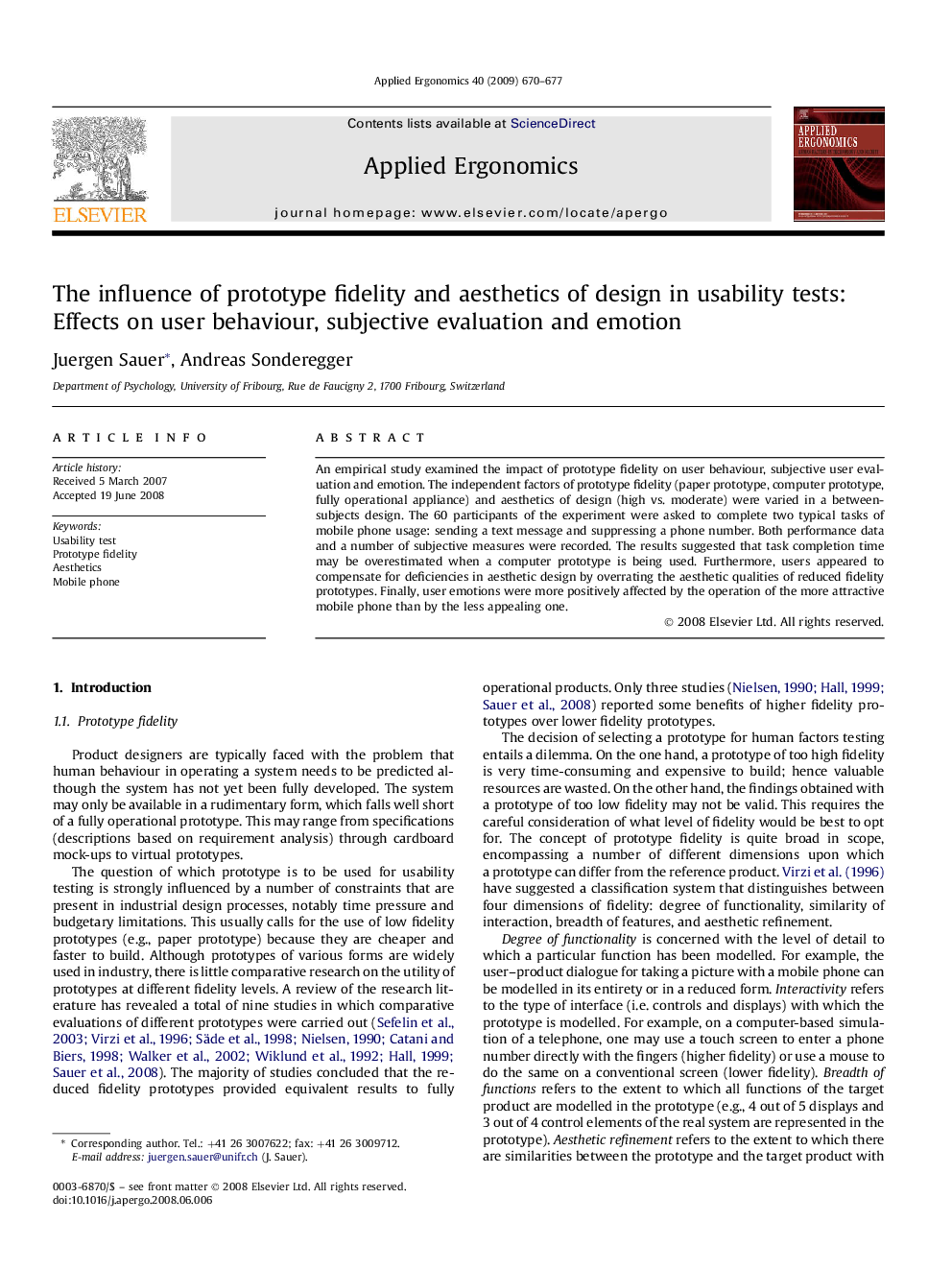| Article ID | Journal | Published Year | Pages | File Type |
|---|---|---|---|---|
| 551309 | Applied Ergonomics | 2009 | 8 Pages |
An empirical study examined the impact of prototype fidelity on user behaviour, subjective user evaluation and emotion. The independent factors of prototype fidelity (paper prototype, computer prototype, fully operational appliance) and aesthetics of design (high vs. moderate) were varied in a between-subjects design. The 60 participants of the experiment were asked to complete two typical tasks of mobile phone usage: sending a text message and suppressing a phone number. Both performance data and a number of subjective measures were recorded. The results suggested that task completion time may be overestimated when a computer prototype is being used. Furthermore, users appeared to compensate for deficiencies in aesthetic design by overrating the aesthetic qualities of reduced fidelity prototypes. Finally, user emotions were more positively affected by the operation of the more attractive mobile phone than by the less appealing one.
